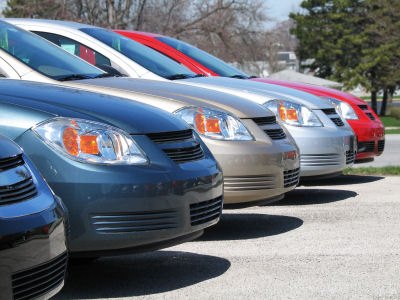Rental Car Rates Soar
The NYT dug through Abrams Consulting Group data on car rental prices, and it seems the cost of part-time wheels has gone up considerably in the last year. By how much?
In May, the average rate for a weekly airport rental of a compact car booked seven days in advance was $345.99, up a whopping 73 percent compared with $199.65 for the same month last year . . . In mid-June, weekly airport rental rates for a compact car averaged $347.44, compared with $210.38 a year ago.
Abrams Consulting blames falling demand, which has rental agencies cutting fleet sizes and jacking up prices. One example from the NYT piece is from Portland, Oregon, where personal experience proves that renting a car can be hilariously difficult. A recent attempt at renting a car mid-week here in Stumptown had me calling every rental agency in town before finally finding an available ride at the last agency on the list. One factor that the NYT piece doesn’t consider: falling residuals for the kind of fleet-queen Detroit iron that rental agencies used to cram onto lots. With resale bringing in less than it used to, it’s no wonder rental firms are trying to cut fleet size and bring up prices.
More by Edward Niedermeyer

































Comments
Join the conversation
Rates are up because demand is down...? What world do these rental agencies live in, one where the basic laws of supply and demand don't exist? It's as if they're run by the government....which I'm sure isn't far off now.
The rental car companies are in survival mode, like so many others. But I doubt adopting freaking price hikes like this is going to drum up much business as it's likely not going to entice Americans to 'get out there!' this summer. It may just backfire and put some of them into BK, as they're very close already.
Car Max has a crap load of vehicles nationwide for sale that are prior rentals. I don't know if that was always the case or because of this trend with the car rental companies.
For many years the D2.8 heavily subsidized rental fleets with slow selling models. Given that they had to pay the UAW members regardless if they were making cars or sitting in the jobs bank selling fleet queens at a loss was the lesser of two evils.